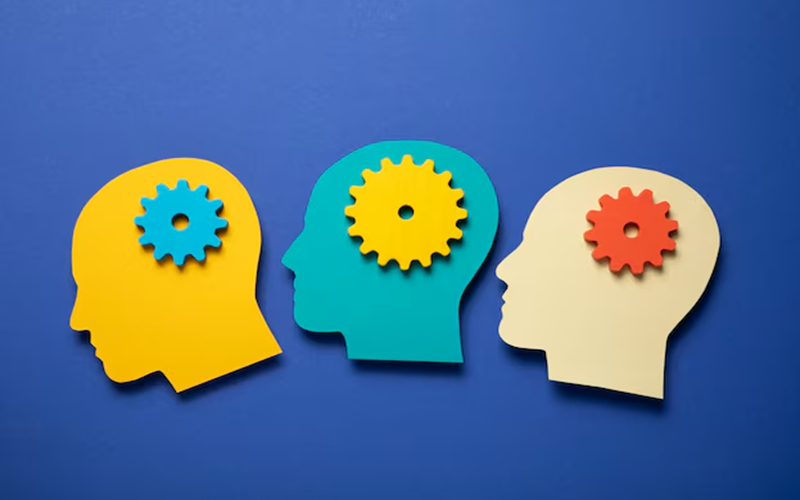
Human process processing is a multi-faceted course of involving a fancy interaction of cognitive capabilities. This paper explores the sequential phases concerned in how people method and execute duties, encompassing notion, consideration, encoding, planning, execution, monitoring, and studying. Drawing on analysis from various fields, we study the underlying neural mechanisms, the affect of particular person variations, and the function of environmental elements in shaping process efficiency. We conclude by highlighting the adaptive and dynamic nature of human process processing and its implications for understanding human behaviour
- Hook: Begin with a relatable instance of a easy process (e.g., making a cup of espresso) and spotlight the underlying complexity.
- Introduce the subject: Outline what we imply by “process” – a goal-directed exercise that requires cognitive effort. Briefly point out that process processing entails a number of cognitive phases.
- State the aim: Clarify the paper’s purpose is to offer a framework for understanding how people course of duties.
- Overview: Point out the cognitive steps that will probably be mentioned (notion to studying).
2. Foundational Cognitive Processes:
- Notion:
- How sensory data is acquired and processed.
- Position of top-down and bottom-up processing.
- Examples: visible, auditory, tactile enter.
- Influence on process initiation: how we discover the duty’s presence or requirement.
- Consideration:
- Selective specializing in related data.
- Varieties of consideration: targeted, sustained, divided.
- The eye bottleneck: limitations in processing a number of stimuli concurrently.
- Implications for process efficiency: avoiding distractions, sustaining focus.
- Encoding:
- How sensory data is transformed right into a usable format for storage in reminiscence (each quick time period and long-term reminiscence).
- Significance of consideration in encoding.
- Influence of working reminiscence capability.
- How preliminary encoding impacts later processing and retrieval.
3. Planning and Choice Making:
- Process evaluation:
- Breaking down the duty into manageable sub-steps.
- Psychological illustration of the duty and desired consequence.
- Position of information and expertise.
- Aim setting and prioritization:
- Defining process targets.
- Allocating assets based mostly on targets and urgency.
- Stability between competing calls for.
- Technique choice:
- Selecting the suitable methodology or process for a process.
- Use of heuristics and problem-solving approaches.
- The trade-off between velocity and accuracy.
- Choice-making:
- Evaluating choices, assessing dangers, and making selections.
- Affect of cognitive biases and feelings.
4. Execution and Monitoring:
- Execution:
- Finishing up the meant actions.
- Coordination of motor abilities and different related talents.
- Affect of apply and automaticity.
- Efficiency Monitoring:
- Evaluating progress in direction of the purpose.
- Detecting errors and adjusting actions.
- The function of metacognition in self-monitoring.
- Suggestions loops within the strategy of process execution.
5. Studying and Adaptation:
- Suggestions and Error Correction:
- Utilizing efficiency suggestions to enhance future makes an attempt.
- Figuring out and correcting errors.
- The function of reinforcement and punishment.
- Talent Acquisition:
- Shifting from novice to skilled habits.
- Improvement of automaticity.
- Lengthy-term reminiscence consolidation of task-related data.
- Process Modification:
- Adapting methods based mostly on altering process calls for.
- Flexibility and switch of studying.
- The flexibility to study new methods.
6. The Neural Foundation of Process Processing:
- Mind Areas Concerned:
- Prefrontal cortex: planning, decision-making, working reminiscence.
- Parietal cortex: consideration, spatial consciousness.
- Motor cortex: execution of actions.
- Basal ganglia: behavior formation and automated abilities.
- Limbic system: feelings and motivation.
- Neural Networks:
- Connectivity and communication between mind areas.
- Dynamic neural modifications throughout studying.
- Neurotransmitters:
- Dopamine, serotonin, and their roles in motivation, consideration, and cognitive management.
- Variations in neurotransmitter ranges influencing process efficiency.
7. Particular person Variations and Context:
- Cognitive Talents:
- Influence of working reminiscence capability, processing velocity, and a spotlight assets.
- Variations associated to age, expertise, and well being situations.
- Character and Motivation:
- How character traits affect choice of sure methods and process efficiency.
- Position of motivation and targets.
- Environmental Components:
- Affect of distractions, time strain, and stress.
- The affect of context on process notion, execution, and studying.
8. Conclusion:
- Recap: Summarize the important thing phases in process processing.
- Emphasis: Reiterate the adaptive and dynamic nature of human process processing; it’s a versatile course of that may be adjusted based mostly on the wants of the duty and the surroundings.
- Implications: Focus on the implications for broader understanding of human habits, studying, efficiency, and cognitive well being.
- Future Analysis: Recommend avenues for additional investigation.
Key Concerns for Writing:
- Use Clear and Concise Language: Keep away from jargon the place potential or outline it clearly.
- Present Examples: Illustrate summary ideas with concrete examples.
- Draw on Proof: Assist claims with references to analysis in psychology, neuroscience, and different related fields.
- Keep a Logical Stream: Guarantee every part builds on the earlier one.
- Be Vital: Acknowledge limitations within the present understanding and be aware areas in want of additional analysis.
Potential Analysis Sources:
- Psychological Journals: Psychological Overview, Journal of Experimental Psychology, Cognitive Psychology, Psychological Science.
- Neuroscience Journals: Nature Neuroscience, Neuron, Journal of Neuroscience.
- Cognitive Science Journals: Cognitive Science, Tendencies in Cognitive Sciences.
- Textbooks: Cognitive Psychology textbooks, Neuroscience textbooks.
Submit Views: 43

